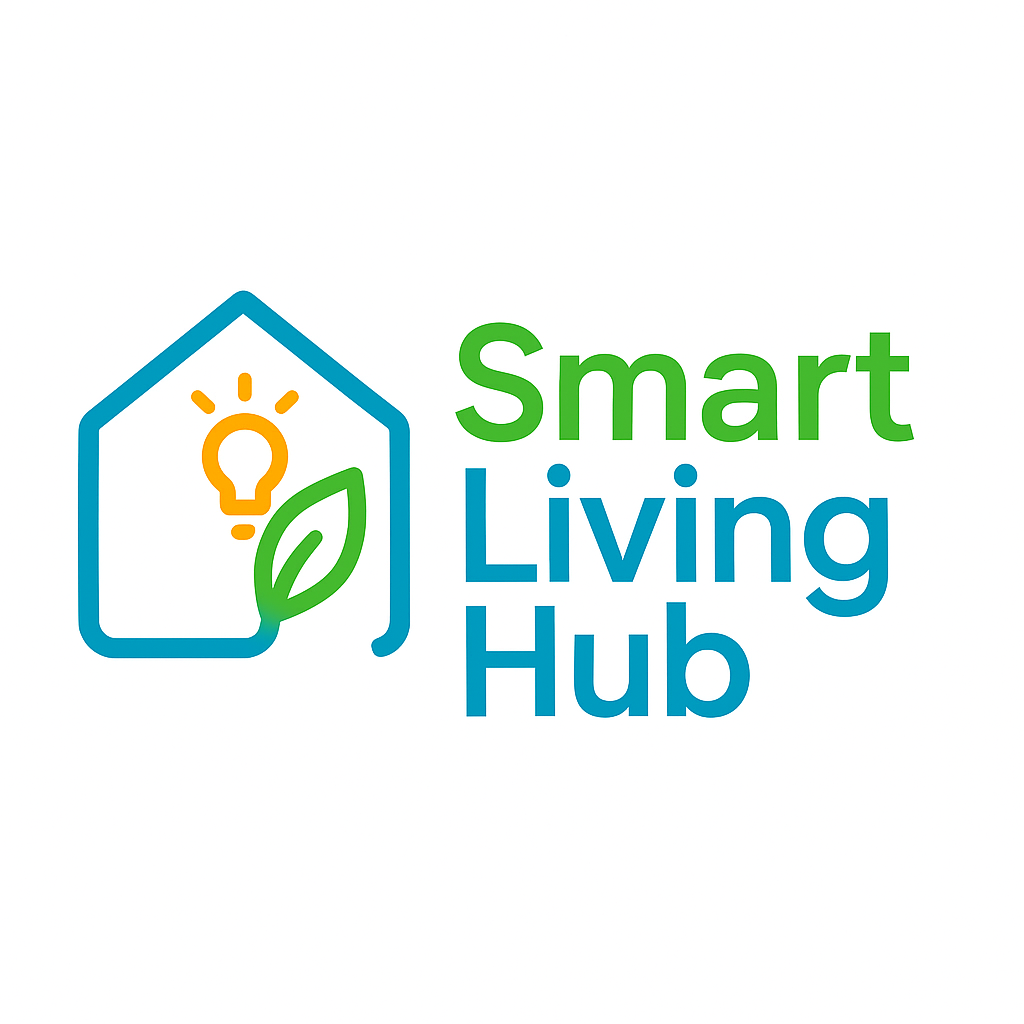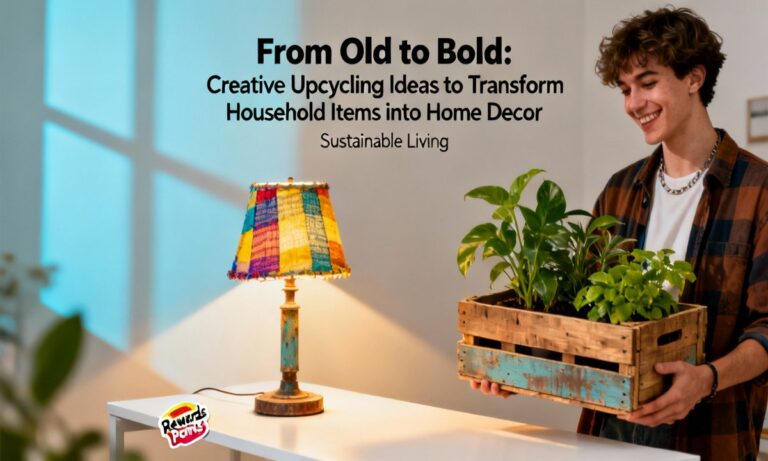Transforming your kitchen into a zero-waste haven is a journey of progress and practicality, inviting fresh ways to live lighter on the planet. Discover accessible strategies, products, and habits that empower every household to reduce kitchen waste, save money, and cultivate a more eco-friendly kitchen in the United States.
Cultivating a Zero-Waste Kitchen and Pantry
Understanding the Zero-Waste Ethos
What Zero-Waste Truly Means
A zero-waste kitchen actively strives to minimize landfill-bound waste through diligent reduction, reuse, recycling, and composting efforts. In the United States, significant amounts of food and plastic packaging end up in landfills. Embracing these habits not only lessens environmental impact but also fosters a healthier, more organized, and often more economical home. Learn more about this approach through resources like EarthHero.
Beyond food and packaging, you can extend your sustainable efforts throughout your home. Explore Eco-Chic: Sustainable Home Decor Ideas for a Stylish & Green Space to bring these eco-conscious principles into every room of your living space.
The Benefits of a Zero-Waste Lifestyle
Embracing a zero-waste approach in your kitchen offers multiple advantages. You can significantly shrink your carbon footprint, becoming a vital part of the solution to the U.S. waste crisis. It is a tangible way to contribute positively to environmental health.
This lifestyle also helps cut grocery bills by encouraging meal prepping and reducing reliance on pre-packaged foods. Furthermore, you’ll enjoy a clutter-free, organized pantry that promotes mindful eating and reduces impulse splurges. These changes can lead to noticeable financial savings. Discover more benefits and tips from EarthHero.
Now, let’s explore practical ways to embark on your zero-waste journey, starting with an essential step in your kitchen.
Streamlining Your Pantry: The Audit Process
Conducting Your Monthly Pantry Audit
To begin your transformation, regularly audit your pantry to identify frequently used items, common waste sources, and potential swaps for reusable kitchen products. Dedicate about 20 minutes each month to this valuable routine. This proactive step helps you understand your consumption patterns better.
Start by removing and grouping all items by category. Next, check expiration dates, composting any spoiled goods if possible. Donate unwanted, shelf-stable items to local food banks, ensuring nothing goes to waste unnecessarily. Finally, note items that are consistently unused to adjust future shopping lists, optimizing your purchases. For further organization tips, consider Declutter Your Home: Essential Storage Solutions for Every Room.
A monthly check helps rotate stock, use expiring items, and minimize impulse purchases. This systematic approach supports a more efficient and less wasteful pantry. It’s a simple routine with significant positive impact on your household’s sustainability.
Smart Swaps for a Sustainable Kitchen
Making simple substitutions for everyday items can dramatically reduce waste. Instead of plastic wrap, opt for reusable beeswax wraps. Swap disposable paper towels for washable cloth towels. This change alone reduces a common household waste item.
Replace single-use zip-top bags with durable silicone bags that can be washed and reused repeatedly. Choose compostable cloths over disposable sponges, and store dry goods like cereal in mason jars instead of plastic bags. These quick swaps are easy to implement and make a big difference.
Essential Steps for a Zero-Waste Pantry
Top 10 Actionable Tips
Ready to optimize your pantry for zero waste? Here are ten proven and actionable steps to guide you. Start by upcycling jars and tins to store dry goods, giving them a second life and reducing purchases. This method adds a charming, rustic touch to your storage solutions.
Embrace bulk shopping by bringing your own containers, effectively sidestepping extra packaging. Practice minimalism by only buying what you genuinely need for the month, preventing excess and reducing potential waste. Make mindful purchasing decisions for long-term sustainability.
Replace single-use plastics with sustainable alternatives like glass, stainless steel, or silicone products. Prioritize items with minimal, recyclable, or compostable packaging to support a circular economy. Additionally, shopping locally helps cut transportation waste and supports your community.
Compost food scraps using a countertop bin or designated outdoor system, diverting organic material from landfills. Preserve seasonal produce through canning, fermenting, or dehydrating to extend its shelf life. Carefully plan meals and grocery trips to avoid unnecessary purchases, and frequently audit your pantry to use or donate surplus items, as recommended by EarthHero. Learn to save more on groceries with Budget-Friendly Living: Your Ultimate Guide to Saving Money on Groceries.
Must-Have Zero-Waste Kitchen Tools
Building a zero-waste kitchen begins with incorporating essential daily-use products. These tools aid in organization, significantly cut single-use plastics, and bolster your sustainable journey. Consider reusable produce bags, a simple swap to reduce plastic when shopping for fresh items.
Invest in beeswax or vegan wax wraps as an alternative to plastic wrap. Opt for bamboo or recycled-fiber cleaning brushes for washing dishes, and use silicone baking mats instead of disposable parchment paper. Stainless steel or glass storage containers are perfect for leftovers and dry goods.
A countertop compost bin is crucial for managing food scraps. Repurpose old jars and tins for storing various dry goods, giving them new life. Finally, choose plastic-free dishwashing block soap to eliminate another common plastic item. Many of these tools are also highlighted in Master Your Kitchen: 5 Must-Have Tools for Quick & Easy Everyday Recipes, perfect for eco-conscious homes.
When investing in new tools, look for certifications such as USDA organic, Fair Trade, or BPI-certified compostable products for peace of mind. Seek inspiration by viewing images of real zero-waste kitchens and pantries online to visualize your own sustainable space.
Stocking Your Plastic-Free Pantry
A thoughtfully stocked pantry is key to reducing impulse shopping and food waste. Consider these staples for a well-prepared and environmentally conscious kitchen. Keep a variety of flours, including all-purpose, whole wheat, and gluten-free options like almond or coconut flour.
Grains such as quinoa, brown rice, oats, and popcorn are excellent bulk staples. Stock up on beans and legumes like black beans, chickpeas, and lentils for versatile meal options. Dried pasta varieties, nuts, and nut butters are also great additions for efficient meal preparation.
Ensure you have baking needs covered, including cocoa, yeast, baking powder, and sugar. Essential oils like olive oil and coconut oil, along with apple cider vinegar, are fundamental. Don’t forget condiments such as mustard, jams, BBQ sauce, and soy sauce, often available in glass. Milk Glass Home provides further insights on stocking your pantry sustainably.
Dried fruits like cranberries, dates, and apple rings offer healthy snack options. Include long-lasting produce such as potatoes, onions, and apples. Common spices and shelf-stable non-dairy milks complete your comprehensive zero-waste pantry. For bulk buying, local co-ops, farmers’ markets, and specialty stores often allow personal containers, but always confirm their policies first.
Optimizing Storage for Longevity
A plastic-free kitchen extends beyond what you purchase to how you store your provisions. Employ airtight glass jars for dry goods, which are often readily available at thrift stores. This repurposing is both economical and sustainable, reducing the need for new purchases.
Utilize stainless steel containers for snacks and storing leftovers, keeping food fresh and eliminating plastic cling wrap. Breathable baskets are ideal for storing root vegetables, promoting air circulation and preventing spoilage. Repurpose glass jars from sauces or pickles for storage instead of buying new ones.
Always take reusable containers when shopping, and remember to note their tare weights for accurate measurements during bulk purchases. An organized space reduces waste, increases savings, and streamlines meal preparation. For solutions beyond the kitchen, explore Declutter Your Home: Essential Storage Solutions for Every Room.
Integrating Zero-Waste into Daily Life
Meal Planning and Prep for Less Waste
Strategic meal planning and batch cooking are powerful tools for minimizing excess packaging and ingredient waste. Plan weekly menus based on your pantry audits and items available in bulk. This approach ensures you use what you have efficiently.
Batch prep meals to effectively utilize ingredients and freeze portions for future consumption. Prioritize recipes that creatively use up ‘odds and ends,’ such as soups, casseroles, or frittatas, preventing food waste. Store leftovers in glass containers or durable silicone bags. For more inspiration, see Mastering Meal Prep: Delicious & Frugal Recipes for the Whole Week and Budget-Friendly Meal Prep: Delicious Dinners Under $5 Per Serving for Busy Weeks.
If you love plant-based, nutritious meals, find inspiration with Plant-Based Power: Easy & Flavorful Vegan Recipes for Healthy Weeknight Meals. Plant-based cooking naturally tends to be both low-waste and budget-friendly, aligning perfectly with zero-waste principles.
Effective Composting and Food Waste Reduction
Composting is a fundamental aspect of any zero waste kitchen. If your city provides collection services, take advantage of them. If not, consider a countertop compost bin for indoor use or seek out local drop-off points or community gardens.
Maintain a sealed container under your sink or on your counter for collecting scraps. Use the resulting compost to enrich houseplants or your garden. For those without outdoor space, many farmer’s markets or community gardens accept food scraps. Resources like the EPA and local extension offices offer guides on safe composting for various living situations. Reducing food waste benefits both the environment and your household budget significantly.
Creative DIY and Repurposing Ideas
Repurposing items saves money and extends the life of containers, truly embodying the zero-waste spirit. Get creative with items you might otherwise discard. Mason jars are incredibly versatile for storing dry goods, leftovers, nuts, or even serving as drinkware, offering endless possibilities for reuse.
Glass sauce jars can be reused for spices, snacks, or homemade dressings after a thorough cleaning. Old tins and baskets are excellent for organizing bulk items, bread, or produce, adding a rustic touch to your storage. Consider sewing your own produce or bread bags from fabric scraps for a personalized touch. Discover more crafty, budget-friendly ideas at DIY Home Makeover: Transform Your Space on a Budget with Creative Ideas.
Simple Daily Habits for Impact
Small, consistent daily habits accumulate to create a significant impact over time in your zero-waste journey. Prioritize cooking from scratch, reducing your reliance on processed, packaged foods. This not only cuts down on waste but also promotes healthier eating habits.
Repurpose all leftovers and scraps; transform them into broths, snacks, or add them to your compost bin. Start with small, manageable swaps, like using beeswax wraps instead of plastic or cloth dish towels instead of paper. Regularly audit your pantry and fridge weekly to catch and address potential food waste early, as recommended by EarthHero.
Consistently batch-cook and meal prep to minimize waste and maximize efficiency. Getting creative with ingredients that might otherwise be discarded can lead to delicious new meals and greater savings. Every mindful action contributes to a more sustainable kitchen.
Navigating Challenges and Celebrating Progress
Overcoming Common Obstacles
Embarking on a zero-waste pantry journey doesn’t require perfection; it’s about progress. If bulk shopping isn’t readily available or stores have specific packaging policies, focus on what you can control. Use reusable shopping bags, avoid plastic where possible, and buy larger packages to reduce overall waste. Milk Glass Home offers similar advice for adapting to various shopping environments.
If you feel overwhelmed or time-constrained, concentrate on simple swaps and routine meal planning. These changes offer substantial returns for minimal effort and can be easily integrated into a busy schedule. Compromise is a natural and necessary part of any sustainable lifestyle, so celebrate small victories.
Embracing a Journey of Continuous Improvement
Remember, every effort to reduce kitchen waste is valuable and contributes to a greater good. You don’t need to implement every change at once; gradual progress is key. Slip-ups are a normal part of any new habit formation, so don’t be discouraged by imperfections.
Celebrate each step you take and continue learning. For more home-wide savings achieved through eco-friendly strategies, explore The Ultimate 2025 Frugal Living Guide: Save Thousands Without Sacrificing Quality. This guide provides comprehensive tips for sustainable living across your entire home.
Frequently Asked Questions About Zero-Waste Living
How do I compost food scraps if my city doesn’t collect compost?
Consider a countertop bin for home composting, partner with a community garden, or locate a farmer’s market that offers drop-off options for food scraps. Many communities provide resources for responsible organic waste disposal.
What are the best reusable storage solutions?
Opt for durable glass jars, versatile silicone pouches, or sturdy stainless steel containers. For high-quality, multi-use gear that stands the test of time, refer to Master Your Kitchen: 5 Must-Have Tools for Quick & Easy Everyday Recipes.
What about grocery shopping where stores don’t allow reusable containers?
In such cases, buy in bulk using paper bags provided by the store, or select the largest package size available. This strategy helps minimize the total amount of packaging you bring home, still contributing to waste reduction.
How do I save money while going zero-waste?
Strategic meal planning, efficient batch-cooking, and bulk-buying pantry staples are excellent ways to reduce both waste and household expenses. Discover more comprehensive savings strategies in Budget-Friendly Living: Your Ultimate Guide to Saving Money on Groceries.
Further Resources and Community Connection
Zero-waste living is a dynamic and growing movement across the US, offering many opportunities for engagement. Join like-minded communities online, ask questions in the comments section below, and share your personal successes. Connecting with others provides valuable support and inspiration.
If you found this guide helpful, please share it and subscribe for regular updates. We are committed to keeping you informed with new zero-waste tips, product launches, and relevant regulatory changes tailored for the US. Explore our comprehensive Eco-Chic: Sustainable Home Decor Ideas for a Stylish & Green Space for more inspiration, or get creative with DIY Home Makeover: Transform Your Space on a Budget with Creative Ideas.
Download your free zero-waste pantry checklist and monthly audit worksheet today! Join the movement, share your progress, and inspire others—remember, every step beyond the bin truly counts toward a more sustainable future.




